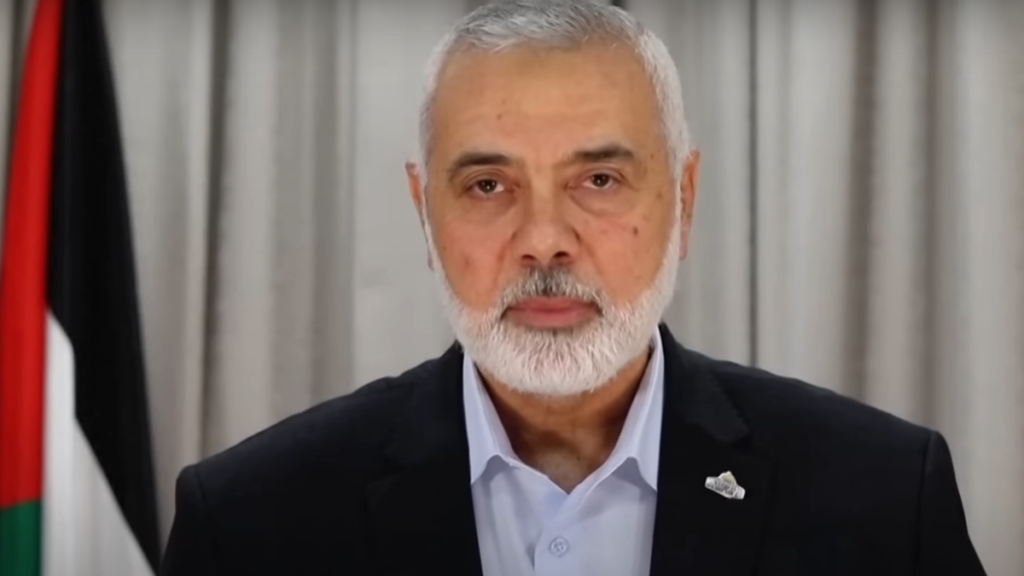
Published October 19, 2023
What if Hamas and its supporters mean what they say? This obvious but awkward question lurks in the background of the debate over Israel’s response to the terrorist organization’s atrocities. Many people are avoiding the question. The reason they avoid the question becomes clear if it’s stated bluntly.
Is Hamas really a genocidal, baby-murdering death cult?
‘Experts’ Ignore Religious Dimension
Hamas is broadcasting its beliefs and livestreaming its deeds to the world. Yet a lot of people want to pretend that Hamas is not what it clearly is. Many supposed foreign policy experts — pundits, scholars, and officials — speak and write on the issue, often at length, with no consideration of the religious motives of Hamas and its supporters.
This absence demonstrates a desperation to have this war be an ordinary geopolitical conflict, with ordinary solutions of the kind experts are trained to offer. The alternative may be too terrible for them to consider, for there is no easy way to deal with a genocidal, baby-murdering death cult that has gained control over millions of people.
After all, if Hamas’ viciousness is tactical rather than intrinsic, a means to an end rather than the end itself, then a negotiated settlement could still bring peace. Then the problem is one of finding the right combination of Israeli concessions to satisfy Hamas. The conviction that this must be the case explains much of the reflexive anti-Israel tendencies among the professional foreign policy class. They think Israel could surely strike a deal to bring peace if only it would be willing to address the demands of the Palestinians.
No Genocide, No Peace
The supposition ignores that the primary grievance of Hamas and its supporters is the existence of Israel and the Jewish people. All other grievances, real or imagined, stem from Hamas’ foundational desire to eradicate Israel and enact another Holocaust. They will still negotiate, but they do not make deals aimed at bringing lasting peace. Every deal must advance their ultimate goal of genocide.
The Oct. 7 attacks demonstrate this hard truth. The atrocities make no tactical military sense unless we accept that torturing and killing Jews — men, women, and children — is the goal itself. Even the broad strategic aim of disrupting negotiations to normalize relations between Israel and Saudi Arabia does nothing to advance a stable, peaceful settlement between Israel and the Palestinians. It might serve the interests of Hamas’ sponsor, Iran, but the Iranian regime also routinely puts Jew-hatred and terrorism over peace and even its other geopolitical goals.
Understanding the war in Israel thus requires knowledge of the religious motives of Hamas, its supporters, and its sponsors. They genuinely believe God wants them to exterminate the Jews and wipe Israel off the map. They indoctrinate their children with these genocidal beliefs, assuring them that carrying them out leads to paradise.
Destroy Hamas or Fight Forever
This dedication to genocide makes lasting peace impossible. Many had foolishly hoped that the responsibilities of governing would force Hamas to move away from its dreams of exterminating the Jews. That hope has proven false. Any realistic plan for a durable peace will first require the elimination of Hamas as the rulers of Gaza. This will require a long, bloody fight. Hamas has not simply dug in. It does everything it can to fill the battlefield with its own civilian population to use them as human shields.
The alternative to trying to destroy Hamas is not peace but constant low-level war with Hamas attacks and Israeli reprisals. But Hamas’ massacre of more than 1,400 Israelis makes untenable that constant state of tension and violence. Israel will not sit back and wait for Hamas to try again. No other nation would accept such terms from a weaker neighbor, and it is ridiculous to expect passivity from Israel.
Any realistic hope for peace in Israel thus must reckon with the actual motives and goals of Israel’s enemies. And that is hard for many to acknowledge, in part because the implications spread far beyond Israel and its enemies.
Reconsidering Hamas
Recognizing the religious motivations of Hamas also directs us to consider the religious motivations of the rest of the Muslim world. We do not need to settle the question of whether Islam is really a religion of peace or not. Only Muslims and their choices can resolve that question. What the rest of us must see is that many millions of Muslims do not believe that they adhere to a religion of peace. Rather, they believe that God has commanded them to kill or conquer everyone else.
We face religious and cultural questions that our leadership class prefers to pretend do not exist because there are no easy answers. But ignoring these realities leads to mistakes in everything from foreign policy to immigration.
Currently, ignoring the reality of Hamas’ beliefs is leading many to fundamentally misunderstand the nature of the conflict between Israel and Hamas. It is time for our leaders to recognize that Hamas is precisely the fanatical group of murderers it claims to be.
Nathanael Blake, Ph.D. is a Postdoctoral Fellow at the Ethics and Public Policy Center. His primary research interests are American political theory, Christian political thought, and the intersection of natural law and philosophical hermeneutics. His published scholarship has included work on Jean-Jacques Rousseau, Hans-Georg Gadamer, Alasdair MacIntyre, Russell Kirk and J.R.R. Tolkien. He is currently working on a study of Kierkegaard and labor. As a cultural observer and commentator, he is also fascinated at how our secularizing culture develops substitutes for the loss of religious symbols, meaning and order.









